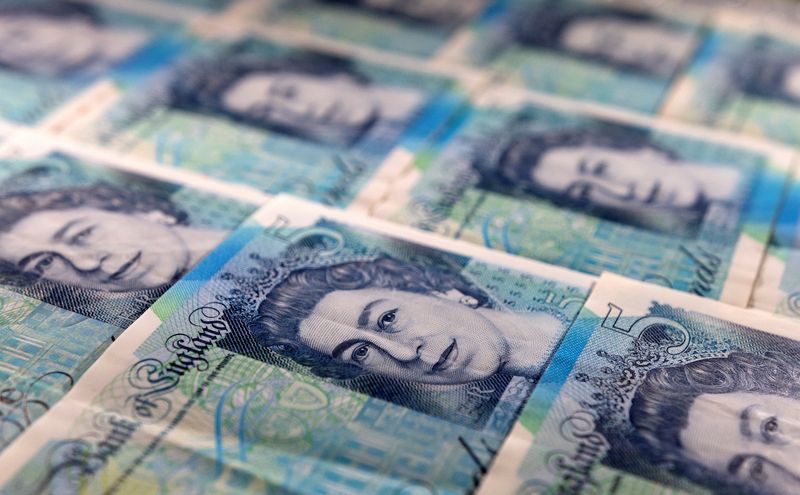By David Milliken
LONDON (Reuters) -Bond markets greeted the arrival of Liz Truss as Britain's new prime minister with the sharpest sell-off of long-dated British government debt since the COVID-19 pandemic caused turmoil in global financial markets in March 2020.
Markets honed in on the scale of extra debt issuance likely to be required if Truss goes ahead with reported plans to freeze household energy bills at broadly their current level, funded by government-backed loans to energy suppliers.
The scheme could cost around 100 billion pounds ($116 billion), according to a person familiar with the situation, but the precise amount would depend on its duration, wholesale prices and market demand.
Some 30 billion pounds of tax cuts and extra support for businesses hit by higher energy bills risk pushing total borrowing even higher.
Deutsche Bank (ETR:DBKGn) said it expected "the vast majority" of the energy support measures and other stimulus to be funded by greater borrowing.
"Increased fiscal support should add to aggregate demand in the medium term, increasing inflation and ultimately increasing the amount of tightening needed for the Bank of England to get inflation sustainably back to target," Deutsche Bank economist Sanjay Raja wrote.
Thirty-year gilt yields - which are sensitive to higher issuance and long-term inflation - rose almost 25 basis points at one point and at 1515 GMT were 17 basis points higher at 3.374%, on course for their biggest daily jump since March 2020.
The bonds' daily underperformance versus German debt was also the second sharpest since March 2020, and they offered a 164-basis-point yield premium over their German peers, the largest since the day after June 2016's Brexit referendum.
Benchmark 10-year gilt yields pushed past a previous high of 3.092% set in 2014 to peak at 3.147%, their highest since July 2011, before falling back to stand 13 basis points higher on the day at 3.070%.
A cap on energy bills would stop inflation rising further in the short run, economists at Barclays (LON:BARC) and HSBC said, potentially reducing the urgency of BoE rate rises.
Two-year gilts - which are sensitive to near-term inflation and BoE rate decisions - rose on the day, pushing yields down 6 basis points to 3.14%.
Financial markets price in a 78% chance that the BoE will make its biggest rate rise in three decades, with a three-quarter point increase to 2.5%.

Gilts are also facing headwinds from the likely start of a programme of BoE bond sales worth 10 billion pounds a quarter later this month, as well as a slump in the value of sterling against the U.S. dollar.
Britain did get strong demand at an auction of 3.5 billion pounds of three-year bonds earlier on Tuesday. However, the yield tail - a measure of the extent to which below-average bids were successful - was the highest since June.